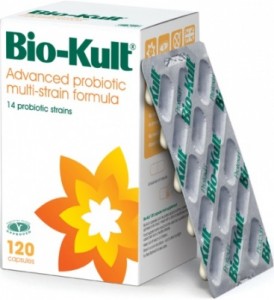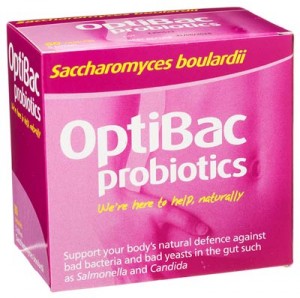Do you find you get constipation, bloating, diarrhoea or abdominal pain – or even all four – more often than you assume is normal? If so, there’s a chance you may have irritable bowel syndrome (IBS). In fact, given it’s something of an umbrella-like gastrointestinal complaint, the likelihood is a good number of people suffer from it without even realising.
Indeed, statistics suggest IBS occurs more often in women than men and, as far as we know, it affects 10-15% of the population of the United States alone1. However, sufferers shouldn’t despair because in an effort to control – or even to try and prevent – flare-ups of symptoms (or ‘triggers’) there are things they can do to help ensure the condition doesn’t dominate their lives. Many of these take the form of lifestyle adjustments and a good number of them concern what we put in our bodies; in other words, diet.
In practice, as you might expect, no single experience of IBS is the same for every sufferer, but a number of the dietary triggers can be, so it’s important to be aware of them.
Dietary triggers
Two of the most painful – and common – IBS symptoms are constipation and diarrhoea. Specifically to prevent constipation, be mindful to limit or avoid eating/ drinking trigger-foods such as:
- processed foods – including snacks like crisps and pastries like cookies
- breads and cereals derived from refined (non-whole) grains
- dairy foods – especially cheeses
- alcohol, carbonated drinks and coffee
Meanwhile, to prevent IBS-related diarrhoea specifically, be mindful not to overdo how much you eat each meal and try to limit or avoid consuming trigger-foods such as:
- gassy foods like beans, Brussels sprouts, celery, raisins and wheat germ
- food rich in insoluble fibre, for instance fruit and vegetable skin
- alcohol, caffeinated drinks, chocolate and foods containing fructose or sorbitol
- fried and fatty food
- dairy products – especially if you’re lactose intolerant
- wheat (if you don’t react well to gluten)
Good dietary habits
Conversely, there are several things you can try and make part of your regular diet that can prevent flare-ups and even soothe an IBS-afflicted gut and intestinal system:
- probiotic-rich fermented foods – one of the ways you might find relief from IBS is to create strong probiotic colonies in your gut, especially if you’re having to cut dairy out of your diet; turning to fermented food with high levels of probiotics is one way, while another is to seek out probiotic supplements
- organic green beans – a good source of soluble fibre
- organic raw honey – a fine natural sweetener to replace refined sugar in your diet
- coconut milk – for those with lactose intolerance especially, replacing cow’s milk with coconut milk can yield significantly positive results; other organic alternatives you might look to could be hemp milk, rice milk or sunflower milk
- egg whites – unlike yolks, whites are relatively easy to digest and not high in fat
- green tea – why not give it a go in place of heavily caffeinated and carbonated drinks?
- lemon juice – offers great nutritional value to the liver and has digestive cleansing properties, plus offers a nice flavour when added to water
- organic brown rice – far more nutritious and thus better for the gut than white rice; it also contains soluble fibre thus it works to encourage normal bowel function
IBS supplements
As mentioned above, to get your necessary fill of good bacteria toting-probiotics, an excellent source is via supplementation. The following – and more – are all available through The Finchley Clinic and are highly recommended by our customers:
Bio-Kult (120, 60 and 30 capsules) – helps to balance the gastrointestinal system against pathogenic, harmful organisms by introducing 14 beneficial probiotic bacteria into the gut; may aid sufferers of candida, gut dysbiosis and post-antibiotic diarrhoea as well as IBS
Latero-Flora (60 capsules) – contains a unique strain of Bacillus laterosporus, a naturally occurring bacteria whose introduction to the gut may maintain a healthy colon, especially in the face of IBS
Saccharomyces boulardii (formerly OptiBac Probiotics For bowel calm) (80, 16 and 8 capusles) – an acclaimed probiotic that naturally helps support bowel health, control and function during diarrhoea episodes; we advise IBS sufferers to take 1 capsule daily
Reference
1. The National Institute of Diabetes and Digestive and Kidney Diseases. ‘Definition and Facts for Irritable Bowel Syndrome’. https://www.niddk.nih.gov/health-information/health-topics/digestive-diseases.


